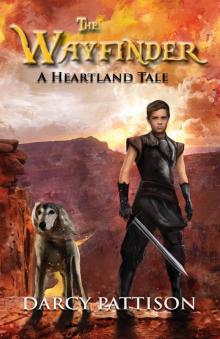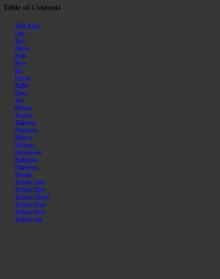- Home
- Darcy Pattison
Sleepers (The Blue Planets World series Book 1) Page 17
Sleepers (The Blue Planets World series Book 1) Read online
Page 17
“But we shouldn’t be surprised,” Jillian said sadly, her anger suddenly gone. “They can’t even save the whales. Or the tigers. Or a thousand other species. They can’t share Earth even with the species who are supposed to be here. We’re crazy to think they’ll let us crowd up their planet.”
“So,” David said, “as a sleeper cell, we’re important. We will do what we can to smooth things over so Risonians can come here. And if we fail, if the planet is destroyed, at least a few of us have survived. A remnant.”
Jillian said through clenched teeth, “I know. You’re right. We need to be here. But geez. We are a sleeper cell.”
By now, they were inside the green building. A door above creaked open, and Jake realized that a stairway led down to the water from inside the building. Of course. That was how they secretly came and went in all kinds of weather. Their only mistake today was to change clothes in the house, instead of in the shed.
David changed the topic. “Seastead should try to stop Mt. Rainier from blowing.”
“We don’t have the right equipment,” Jillian said.
Jake sank low into the water, letting his gills take over his breathing. He only tried to keep his head high enough to listen to their conversation. Jake wondered if it was true that the Risonians didn’t have the right equipment to control Mt. Rainier. Surely by now, Dolk’s antigravity work had been turned into fully developed protocols. Stefan and Mai-ron Dolk, his best friend and his friend’s father, and had been dead for five years now, so that was enough time to try it out and perfect it, right?
David laughed. “We won’t solve this now. Let’s go home. I think the cook is making wolkev for supper.”
Wolkev? Instantly, Jake’s mouth watered. It was another good reason to sneak into Seastead!
Without looking around, David and Jillian splashed into deeper water and dove.
Jake had escaped their notice, but he forced himself to count to 100 before he followed. After all, he had a homing beacon to guide him.
The Moon Pool
A stiff breeze blew the surface of Puget Sound into white caps, but diving underwater, Jake soon left behind the layers affected by wind. Puget Sound’s waters felt clean, in spite of the sick seals. His legs automatically Velcroed together so that a few powerful thrusts carried him deep enough to see Jillian and David at the edge of the underwater cliff. They dove in unison.
Jake hovered a few feet away from the cliff’s edge, giving them a few minutes to get ahead of him. Finally, he stood on the edge himself, listened to the homing beacon thrumming from below, and dove. This time, Jake didn’t play; he clasped his hands to his legs and dropped headfirst like a rock plummeting toward Seastead.
As the lights of Seastead grew near, Jake did a spread-eagle and slowed to hover while watching the dark figures of David and Jillian. Surprisingly, they dove underneath a pod. Looking through huge windows, Jake realized the pod had a moon pool; the air pressure inside the pod would keep water from coming inside. It was like pushing a glass upside down into a bucket of water; the water wouldn’t go inside the glass because the air pressure kept it out. Open access like this made sense, but somehow, he’d expected them to go through an airlock.
Jake watched the two teens pull themselves out of the water, grab golden-colored chamois cloths to dry off, and then go into separate rooms, probably changing rooms.
It was time to decide. Was he going in or not?
For Jake, the biggest question was what Seastead intended to do about Mt. Rainier. Would they use Risonian technology to stop the volcano from erupting? From David and Jillian’s conversation on the surface, he guessed that they planned to do nothing but wait and see what happened. But Earth couldn’t wait. He needed to see what equipment Seastead had and try to figure out how to get something over to Mt. Rainier in time to stop an eruption.
Jake grinned. If he could find the kitchen and steal a wolkev pastry, he’d do that, too. He hadn’t eaten anything since lunch, and his stomach was an empty pit.
He waited, looking at his waterproof watch and forcing himself to wait for five minutes. He must not get caught.
Finally, Jake moved to the edge of the chamber, ducked down under the chamber wall, and swam up until his face broke the surface of the moon pool. Glancing around, he saw no one. He realized he’d been worried, too, about some alarm going off. But all was silent.
Jake heaved up onto the side of the pool and grabbed a chamois cloth from the nearby hooks to towel off. He tiptoed to the changing room where he’d seen David enter and slid around a corner. Instantly, a light came on. Motion-activated, Jake guessed. That meant David was long gone, which was good. The room was lined with lockers, plastic cubicles that held random pieces of clothing. Some lockers had padlocks—there was always someone less trusting than others. Jake didn’t have to change clothes because he’d stay warm no matter what. But his underwear would drip water up and down hallways if he didn’t.
With a thumping heart, he rummaged through three lockers before he found a pair of shorts and shirt that fit. The t-shirt had a photo of a dog wearing a brown hood and robe, and said, “Adorable, I am. Give me treats you must.” Apparently some alien here liked “Star Wars” too much.
At the far end of the room was a door. It could lead to anywhere. Jake hesitated, worried about the unknown. But in the end, he shrugged. He had to risk it.
The shiny metal doorknob was warm. Jake clung to it for a moment, telling himself to calm down. He took deep breaths, but something was different about the air here. He could breathe, but it was felt odd.
He steeled himself, pulled the door open an inch, and peered out. The view to the right was clear, but in order to be able to see toward the left, he’d have to open the door wider.
Go for it, he told himself. Jake jerked the door open wide and stepped into the corridor, right into the arms of Commander Gordon.
“Jake Rose, I presume,” said Gordon. His voice squeaked, high-pitched and unnatural.
Instantly, Jake understood. Seastead was using the famous Tri-mix gas mixture of helium, oxygen, and nitrogen. It was easier for humans to breathe this mixture and caused fewer problems with decompression issues, fewer cases of the bends, chokes and staggers. But the side effect was a high-pitched voice that sounded like the classic Earthling Donald Duck cartoons. The addition of helium was the problem: because it’s a lighter weight gas, sound waves travel differently than in the regular mix of atmosphere, so the sound changed.
Behind him, squeaked another voice, “I’m sorry.”
Jake spun to see David blocking the doorway back into the changing room.
He was caught.
David went on, “I wanted to tell you a hundred times, but I had orders.”
Bitterly, Jake said, “Yeah. I know about orders.” His voice was a disconcerting squeak, too.
“This way,” Commander Gordon said and gestured to the corridor behind him.
Jake followed him until they stopped just before entering the airlock to a different chamber. Commander Gordon pulled out a key and opened a door to the right. He stood aside and motioned for Jake to enter.
As Jake passed, Gordon said angrily—or as angrily as he could when sounding like a cartoon duck, “You’ve ruined everything that your mother has worked for her entire life.”
Taken aback by the anger, Jake stepped inside, away from the Commander.
The door slammed behind him. The lock turned with a click.
Jake was a prisoner in Seastead.
The Commanders
Jake’s prison room was a small bedroom or stateroom, like what you would expect on a submarine. A bed dropped down from the wall to fill half the width of the room. On the other wall was a tiny drop-down desk, a chair and empty storage, including a long cavity for clothing; the rest of the wall was drawers. Everything was a tan plastic, plain and boring. At the back was a tiny bathroom. No window. He wondered if this was indeed a prison room or just a regular bedroom.
For a time, he sat on the cha
ir and waited. He set the timer on his watch so it would keep track of how long he’d been in here. Surely, someone would come back and question him soon. But after a while, he grew tired of waiting. He pulled down the bunk and sank back with his hands behind his head. How long would they make him cool off?
His stomach grumbled.
Stoically, he waited, eventually closing his eyes.
The next morning, Jake woke early, his empty stomach rumbling. According to his timer, he’d been a prisoner for sixteen hours. Sir and Easter must be going crazy by now.
A knock startled him, and he sat straight up. Before he could react further, a Risonian soldier shouldered his way in, and with one hand expertly undid a knob, which dropped the desktop. He set a covered tray there. Just as abruptly, he left, saying nothing.
Jake hopped out of bed and padded barefoot the two steps to the desk. Lifting the lid, he stared. Pastries. Leaning closer, he drew in a deep breath. Sweet, tangy. Wolkev!
Hungrily, Jake pulled up the chair and bit into a pastry. The fruit was obviously canned, not fresh, but it was wolkev. He tried to compare it to Earth fruits. Perhaps it was the consistency of a banana, but it was red, and juicier like a raspberry, but not as sour, and no seeds. It was no good making comparisons like this, he decided. You had to add too many qualifiers to get it right, and by then, it was a worthless comparison. Wolkevs were just wolkevs, the breakfast of his childhood. He nibbled, savoring the bites. He burped. It wasn’t such a bad thing to be locked up by Risonians, he decided.
Abruptly again, the door opened, and the soldier motioned for him to follow.
Jake followed, still barefoot. In the middle of the corridor, the soldier opened a room and gestured for Jake to enter. It was a conference room with a small table.
“Sit,” squeaked the soldier.
He left and locked the door behind him.
To the side, Jake found another table with refreshments and filled a plate with another round of wolkev pastries. Intent on his food, he didn’t look around when the door opened again, until Commander Gordon said, “Good morning.”
Jake turned to wave at him, but stopped short, speechless. Standing beside the Commander was Dad!
When had they notified his Dad, and how did they get him to come down this quickly?
Commander Rose nodded to his son, but let Gordon take the lead.
“Jake, you realize you are trespassing by being here?” said Commander Gordon. He was trying to sound stern, but the duck-like squeaky voice made him sound ridiculous.
“Trespassing? You have illegally created and hidden an entire Seastead, and you’re going to talk to me about trespassing?” Jake almost laughed at his own voice. This would take some getting used to, but it was kind of fun.
Gordon raised an eyebrow and turned to Jake’s Dad. “He’s not a child. I didn’t think we’d be able to intimidate him that easily.”
They were testing him? No, he wasn’t a child. Growing up on a dying planet, the stepson of the Chancellor—he’d never been allowed to be a child.
“Dad, why’d you come down here?” Jake asked.
Commander Rose looked startled, then laughed and said to Gordon, “He doesn’t know.”
“Know what?” Jake demanded.
Dad cleared his throat and straightened his uniform. “Seastead is my post, my assignment. I am the Navy liaison with Seastead.”
Jake leaned his chair back on its legs and stared. “You’ve been posted here for the last month? And you didn’t tell me?”
“Orders,” said his Dad shortly.
Jake ducked his head and let his chair slam down on the floor—an action he knew his father hated. “You didn’t trust me.”
“Jake, it was my duty. I was ordered to not tell anyone—especially my family.”
“Does Mom know?”
“Well, yes.”
Jake’s chest tightened, like someone was squeezing this lousy thin air out of his lungs. Bitterly, he thought, this is what betrayal feels like.
Dad pulled up a chair to the table and said, “She’s the Risonian ambassador. Of course she knows that her people have set up a Seastead. She’s part of the reason the Navy chose me for this assignment.”
That sounded reasonable, Jake thought. But he still felt betrayed; neither parent trusted him.
“The question is what to do with you now?” Gordon said.
“David and Jillian go to school,” Jake said with a shrug.
“Yes.” Commander Gordon drew up his own chair. “My family and the Lusk family moved here fourteen years ago. While my wife stayed here, I traveled back and forth to Rison, serving in the space fleet until Seastead opened three years ago, when I accepted the position as Director here. Jillian’s father died two years ago, but her Mom still runs the bookstore on Bainbridge Island. That means David and Jillian have been raised on Earth since birth. In all ways except anatomy, they are Americans. Yet, they understand what is at stake for Rison and their race.”
“What’s at stake? Everyone knows that, especially after the Fullex was blown up!”
The room was silent, like the air had frozen. Jake looked from Dad to Gordon, wondering what he was missing.
Dad shook his head and looked down. “Commander Gordon’s sister was on that flight. She was the Tizzalurian ambassador to the Bo-See Coalition. She hoped to help negotiate their landing on Earth.”
Horror hit Jake like he’d been physically slapped. He’d been glad that he hadn’t known anyone on the ship. And then he felt guilty that he had so easily shrugged off its destruction. He hadn’t known Gordon’s sister, of course, but even one real connection made it more awful. “I’m so sorry,” he stammered.
Gordon nodded stiffly, sitting ramrod straight. His nose membranes flared, and his hands clenched into fists. But he said nothing. Visibly, he drew a breath and came back to the situation. “The question is what to do with you now.”
Jake realized that this was a crucial question. As the Ambassador’s son, he was going to be watched more carefully; in fact, the paparazzi were offered lots of money to take a single photo of him. And no one even suspected that he was half-human. The uproar over that issue alone could easily derail the entire process of finding a place on Earth for Risonians.
“I know what’s at stake,” he said solemnly. “I would never tell anyone about Seastead.”
“How did you find us?” Gordon asked.
“A harbor seal brought me here.”
“What? How?”
Jake explained about the sick pup and how he’d crudely talked to the seal. That meant he had to back up and explain about talking to the Great White shark in the Gulf of Mexico—which brought a sharp look of disapproval from his father. But he said nothing, just motioned for Jake to continue his story.
“The Earth sea creatures don’t understand everything I try to tell them,” he said. “It’s like a different dialect or something. But they understand some of it. After I helped the seal, I noticed a thumping in the water. I didn’t recognize it as a homing beacon because it was so out of place. But it made me curious enough to investigate and eventually led me here.” He stopped and remembered the seal pup. “I think,” he said slowly, “something is making the harbor seals sick.”
Gordon wasn’t distracted by this; he kept the same line of questioning. “When’d you find us?”
“Two days ago.”
“Why didn’t you try to sneak in then?”
Jake leaned forward and said earnestly, “As I came up on Seastead, there were lots of lights on; then, everything went dark except in one window. I watched. It was your room, sir. And I saw David. I had to think.”
Gordon nodded. “That explains part of it. You followed David and Jillian down here last night. Right?”
“Yes, at first. But then the beacon brought me down all the way.”
Gordon frowned. “Who’ve you told about Seastead?”
Jake leaned back and crossed his arms. The question hurt; they really didn’t trust
him. “No one.”
“Easter? Sir?” Dad asked.
Jake shook his head. “No one. I knew this was special, and I wanted to investigate, but I knew I could never tell anyone about it. But I bet Easter and Sir are worried that I didn’t come home last night.”
“No,” Dad said. “David called and asked permission for you to spend the night with him. Your grandmother was impressed that he called, not you. She already likes David. And it’s a good thing that it’s Saturday, so you don’t have to go home till much later. By then, I’ll call Easter and ask about you and get excited that you’re making new friends.”
Jake glared at Dad. No trust at all.
Well, it went both ways. Where was Dad when Captain Hill was bullying him at the coffee shop? Where was Dad when Captain Hill dropped Brown Matter in the crater of Mt. Rainier?
“You ever get the photo I sent you of Mt. Rainier smoking?” Jake asked.
“What? Oh. Yes, I got it. Wi-Fi reception is good here.”
Jake took a deep breath. “I know why the volcano is smoking. Brown Matter.
He had their attention now, he thought.
Dad jerked upright, standing to place his palms face down on the table and lean toward Jake.
“What’ve you done?” Gordon cried.
If Jake had been mad that they didn’t trust him, he was absolutely furious now. What had he done? “What? You think I’m an idiot?”
Through gritted teeth, he told about meeting Captain Hill in the coffee shop. Finally, he thought, I have Dad’s attention. He told about breaking into Blevins’s house—and Dad couldn’t sit still. He jumped up to pace the tiny room, fists clenched and barely controlling himself. But his father’s eyes got big and thoughtful when he explained that Blevins was Yarborough, the Canadian volcanologist who had plagiarized.
“He has a photo of me when I was only seven,” he said.
“This is bad,” Dad said.
“It’s worse.” Jake explained about Captain Hill using a drone to deliver Brown Matter to Mt. Rainier.
Gordon shook his head. “We were wrong. We should’ve brought you in from the start. Too many things have happened to you, and we knew none of it. That’s dangerous.” He hesitated, but grudgingly added, “You’ve handled yourself well.”

 When Kittens Go Viral
When Kittens Go Viral The Wayfinder
The Wayfinder Sirens
Sirens The Girl, the Gypsy & the Gargoyle
The Girl, the Gypsy & the Gargoyle Saucy and Bubba
Saucy and Bubba Longing for Normal
Longing for Normal Kell, the Alien
Kell, the Alien Sleepers
Sleepers Vagabonds
Vagabonds Sleepers (The Blue Planets World series Book 1)
Sleepers (The Blue Planets World series Book 1) Pilgrims (The Blue Planets World series Book 3)
Pilgrims (The Blue Planets World series Book 3) Pilgrims
Pilgrims Kell and the Horse Apple Parade
Kell and the Horse Apple Parade Sirens (The Blue Planets World series Book 2)
Sirens (The Blue Planets World series Book 2)